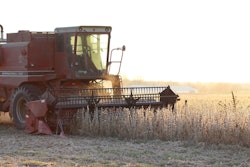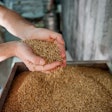
The RaboResearch Food & Agribusiness team hosted an exclusive update on itsFall Harvest Outlookon October 25.
One of the market segments analyzed during the update was soybeans and its relation to renewable diesel production.
The Fall Harvest Outlook update noted the115% expansion in nameplate renewable diesel production capacityset to take place between 2022 and 2024 carried with it positive implications for U.S. oils seed and oilseed crush capacity demand.Rabobanksaid coupled with the capacity of a slowly shrinking fatty acid methyl ester (FAME) biodiesel infrastructure, the U.S. would have been equipped with the capability to produce over 7 billion gallons of biomass-based diesel (BBD) annually by 2024, compared with 3.1 billion gallons of actual production in 2022.
Production numbers showcased this newfound capability with January, March, May and June all breaking new records in terms of domestic BBD production in 2023. Unfortunately, for the BBD value chain, the Environmental Protection Agency (EPA)finalized the renewable volume obligations (RVO) mandates in Juneat levels well below capacity expansion, said the update.
This, noted Owen Wagner, Grains & Oilseeds analyst with RaboResearch, resulted in a front-loaded fulfilment of the BBD mandate, BBD oversupply and, beginning in September, a crash in the market for advanced BBD.
"Unfortunately, renewable diesel production has gotten a bit ahead of itself," said Wagner. "Obviously there's been a lot of exciting announcements made in terms of new investments over the last several years. It's important to remember, however, that at the end of the day, it's the EPA that sets the renewable volume obligations.
“如果你还记得那些那些卷没有数量especially high, or were just disappointingly low depending on your perspective," he added. "With all of this new capacity underway, and those volumes remaining relatively flat, what we've seen is that the producers have sort of overshot the RVO in the first several months of production or the first half of the year.
"They're well ahead of schedule from June in terms of fulfilling that mandate," Wagner said. "This has led to a glut of biomass based diesel supply in the market that has both tanked the value of RINs and has also weighed heavily on soybean oil prices here in the last in the last month."






















